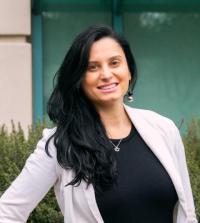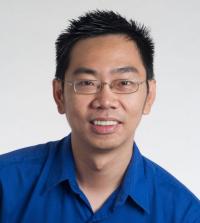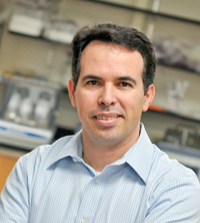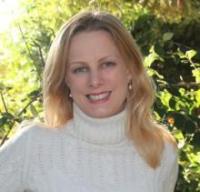How does being a First-Gen faculty member change the way you teach?

Introduction
The Center for Educational Effectiveness welcomes new faculty learning community cohorts each academic year. Each community participates in an exploration of topics central to pedagogy in higher education with the aim of developing a deeper understanding of their own teaching practice, while engaging in activity that provides a foundation for becoming educational innovators. At the conclusion of the program, members of the 2023 First-Gen Faculty Learning Community were asked to reflect on the following prompt: "How does being a first-gen faculty member change the way you teach?". In today's blog post, we will share their responses, which elaborate on their individual classroom approaches.
2023 First-Gen Faculty Learning Community Members: Glaucia Carvalho do Prado, Chemical Engineering | Cheemeng Tan, BioMedical Engineering | Jorge Rodrigues, Land Air and Water Resources | Rebekka Anderson, University Writing Program
Glaucia Carvalho do Prado
Chemical Engineering

As a former first-generation engineering student from an elite Brazilian University, I have faced some challenges throughout my education. For instance, low enrollment of first-generation students and the lack of financial and emotional support made it difficult for me to get involved in many campus/students’ activities and therefore my sense of belonging was low. Imposter syndrome is very common for underrepresented minorities, including first-generation students. Even though it did not affect my academic performance, I have learned upon graduation that this lack of sense of belonging impacts one’s social capital, which is one of the primary factors that can affect learning and professional skills. Consequently, my experiences as a first-generation student have defined who I am as a professor and the teaching practices that I use in my classes.
As an educator, I want to promote a classroom environment where all students feel like they belong.
As an educator, I want to promote a classroom environment where all students feel like they belong. It is important to me that my students see that I treat everyone respectfully, that I care for their wellbeing and treat each one of them as unique individuals that have specific needs. This is accomplished by taking time and effort to develop a personal connection with my students. I do this by conducting a survey before the first lecture in order to learn their names, interests, cultural background, and career goals. During the first lecture, I discuss some of their responses, talk about my own experiences, and provide information on campus resources. This practice helps me to build a strong and meaningful relationship with my students which helps them to see me as a trustful resource.
One of the most interesting learnings from the first-generation faculty learning community was the positive effects that overall well-being and mental health have on students’ academic performance and motivation. As my own experience as a first-gen student, I have been taught by my parents that relaxing, social events, and self-care practices are selfish and luxurious items, which some first-generation students may also relate. Therefore, I have developed a mental health class in the Chemical Engineering Department, where we practice and discuss the importance of self-care, perform activities to increase peer and faculty interaction, and organize students meeting with alumni from diverse backgrounds. These practices are helpful to increase their social capital, sense of belonging and develop their professional networking skills.
In closing, I would like to invite the reader to reflect on the power that educators have in changing students’ lives and persistence to finish college through their behavior and practices that goes beyond teaching discipline-specific technical content.
Cheemeng Tan
BioMedical Engineering

Recognizing the heterogeneous nature of first-generation college students' capital is vital for their academic success. The various forms of capital, including financial, human, social, and cultural, significantly influence students’ network and knowledge acquisition during their college journey. However, failing to consider these differences in teaching practices can lead to unfair biases in assessing student performance and hinder effective learning.
To address this issue, I plan to create "FG-STAR" (First-Generation Students' Capital Assessment and Resource). FG-STAR will be a survey deployed at the beginning of each course, quantifying each student's financial, human, social, and cultural capital. Using the survey results, students will be guided toward campus resources to enhance their capital. Throughout the course, an instructor will also implement targeted interventions to foster their growth. The ultimate goal is to deploy FG-STAR nationally, ensuring first-gen students across colleges receive the support they need.
Each first-gen student possesses a unique combination of hurdles that require tailored solutions.
As I embarked on this journey, two significant realizations stood out. First, I discovered that many of the challenges I faced during my own college experience resonated with the common struggles of first-gen students. Second, I learned about the diverse range of challenges that these students encounter in college. Each first-gen student possesses a unique combination of hurdles that require tailored solutions. By increasing awareness of these challenges and implementing minor adjustments to our teaching practices, we can create a more inclusive and supportive learning environment, boosting every student's chance of success beyond the classroom.
Jorge Rodrigues
Land Air and Water Resources

Throughout my life, I was taught: you need to work hard in order to succeed. You need to “bite the bullet”, because life is hard and others will make it even more difficult for you. But it really doesn’t need to be this way for others who follow the same path after me, right? Yes, there were difficult times for my Great-Grandparents being immigrants and farmers, difficult times for my Grandparents with very little education and serving in the military, and difficult times for my Parents working during the day and taking classes at night. They all did what was expected to provide for the next generation.
I have now the opportunity of doing the same, not only for my own children, but for first-generation students that I teach. Being a first-generation student, I believe I have an improved understanding (not perfect, just improved) of their challenges, self-doubts, and the constant feeling that they do not belong. For these reasons, I have substantially altered my classroom approaches to teaching. I have chosen to make the scientific content of my lectures directly linked to their daily experiences. I have carefully revised the contents of each one of my lectures to selected examples that are easy to be understood. I have put more emphasis on providing discussion sections that serve as opportunities for peer instruction. This accounts for the fact that first-generation students are less likely to ask questions in the classroom, but might feel more comfortable in working with a student partner. I have also developed an exercise of weekly reflection about the lecture content to take the topic outside of the classroom and into their shared experiences. Finally, I have developed guiding questions for each of my lectures to ensure that students understand the concepts being developed for the different topics covered throughout the quarter.
... I have chosen to highlight the societal contributions of a diverse group of scientists from different backgrounds and experiences ... during my lectures to bring awareness that we ALL belong.
As important, I have chosen to highlight the societal contributions of a diverse group of scientists from different backgrounds and experiences (women, African-Americans, Asians and Hispanics) during my lectures to bring awareness that we ALL belong.
Rebekka Anderson
University Writing Program

I have always seen myself as a faculty mentor, but it wasn’t until I participated in the First Generation Faculty Community that I realized how important faculty mentors are to first-gen students. Whereas continuing gen students often have parents and family members who can help them navigate academic processes, such as selecting elective courses that build a knowledge area or leveraging campus writing support resources, first-gen students often do not have built-in support networks familiar with those processes. This is where faculty mentors play an important role in first-gen students’ success.
... I create opportunities inside and outside of class to talk with students one-on-one or in small groups—I strive to get to know them as individuals, to learn about their goals, needs, successes, and challenges.
As a first-gen faculty member, I support students as a faculty mentor in several ways. In the small classes that I teach and in my role as a faculty advisor for the minor in professional writing, I create opportunities inside and outside of class to talk with students one-on-one or in small groups—I strive to get to know them as individuals, to learn about their goals, needs, successes, and challenges. As a mentor, I help students navigate unfamiliar processes, take advantage of resources they didn’t know existed, develop productive study and writing habits, understand how to read new situations and opportunities, and much more. For example, I know that internships are key to landing that first job after college, but many first-gen students cannot afford to complete an internship on top of or in lieu of their current full- or part-time positions, and particularly not an unpaid internship. In my role as faculty advisor, this awareness has helped me to ask better questions when talking with students about the internship requirement for the minor in professional writing, and it has helped me to be more empathetic and innovative in my thinking when talking with students about options.
When I was undergraduate student, I had faculty mentors who looked out for me, and it was because of them that I succeeded in college and had the courage to pursue a master’s degree and eventually a PhD. I want to do the same for my students.
The First Gen Learning Community has also impacted how I teach as a first-gen faculty member. I now identify myself as a first-gen faculty member at the beginning of each quarter. I talk about my experience as an undergraduate student and let students know that I am a resource for them. I have added a question to my beginning-of-the-quarter Background Information form about first-gen status so that I am aware of which students in my classes are first-gen. On my syllabi and Canvas sites, I include descriptions of and links to a wide variety of campus resources, and I mention these resources frequently throughout the quarter. I also announce internship opportunities, career fairs, graduate school opportunities, and upcoming events that are relevant to the course topic, and I offer to meet with any student who would like to talk about opportunities and strategies for acting on them.
What is the First-Gen Faculty Learning Community?
The First-Gen Learning Community (FGLC) seeks to foster connection and community among first-gen faculty, defined as faculty whose parents or guardians did not complete four-year college degrees. The group will discuss issues related to first-gen students and their learning needs and explore how to support first-gen faculty in their teaching and research.
How do I join the FGLC?
Applications for the 2024 community will open in fall 2023. Please check our website for additional information and to learn about all of CEE's Faculty Learning Communities.
